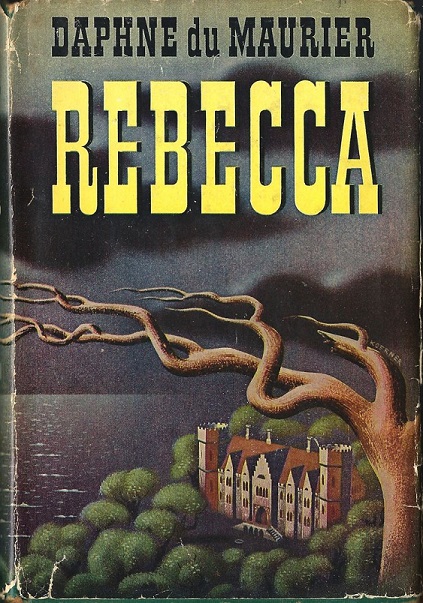Summary | Excerpt | Reviews | Beyond the book | Read-Alikes | Genres & Themes | Author Bio

 Book Reviewed by:
Book Reviewed by:
Callum McLaughlin
Buy This Book
In this haunting novel, a young nurse forms an unlikely connection with the elderly man she cares for, and finds herself confronting the guilt she carries from her past.
Marguerite Demers is twenty-five when she leaves Paris for the sleepy southern village of Saint Sulpice to take up a job as a live-in nurse. Her charge is Jerome Lanvier--once one of the most powerful men in the village, now dying alone in his large and secluded house surrounded by rambling neglected gardens. Manipulative and tyrannical, Jerome has scared away all of his previous caretakers.
It's not long before the villagers have formed opinions of Marguerite. Brigitte Brochon, pillar of the community and local busybody, finds her arrogant and mysterious and is desperate to find a reason to have her fired. Glamorous outsider Suki Lacourse sees Marguerite as an ally in a sea of small-minded provincialism. Local farmer Henri Brochon, husband of Brigitte, feels sorry for her and wants to protect her from the villagers' intrusive gossip and speculation (but Henri has a secret of his own that would scandalize his neighbors, if only they knew). The sudden arrival of Jerome's three sons will upend the rhythm of their days, changing their lives forever.
Set among the lush fields and olive groves of southern France, and written in clear prose of luminous beauty, Marguerite is an unforgettable novel that traces the ways in which guilt can be transformed, and how people can unexpectedly find a sense of redemption.
1
She dreamt of nothing. She woke to the shuddering of train doors, catching only a glimpse of the stark platform and pale white sky before realising this was her stop. As she hurried from the seat, clutching her bags, she had to pull on a strap that had become caught on a rung of the luggage rack. She reached the doors as they were already closing, with a hiss like a punctured tyre. She had to tug her body through them, through their insistence as they clamped around her.
There was no one on the platform except for a woman in a florid skirt and long brown coat, the waxed coat of a farmer. She squinted at Marguerite. She stared for some time at Marguerite's trainers, and then looked back down the platform as if for someone else.
Marguerite dropped her bags and knelt down to take a jacket out of her hold-all. The air was bitter, no warmer than it had been in Paris at seven o'clock that morning, in spite of how much further south she had come. When she stood up to put her jacket on, the ...
The prose remains assured throughout, with particular praise owed to the sharp dialogue. Kemp has a knack for human observation, perfectly capturing the fraught mood between each of the multifaceted characters as they seek to unburden themselves of their hidden pain while maintaining their standing within the community. Through the gradual unraveling of the tangled web that ensnares them all, we see that no one can ever truly be free while they continue to suffer beneath the weight of the past...continued
Full Review
(588 words)
This review is available to non-members for a limited time. For full access,
become a member today.
(Reviewed by Callum McLaughlin).
 Edmund Gordon, author of The Invention of Angela Carter
An engrossing, mysterious, tender and disquieting book, alive to the agony of private sorrow … a debut of real significance.
Edmund Gordon, author of The Invention of Angela Carter
An engrossing, mysterious, tender and disquieting book, alive to the agony of private sorrow … a debut of real significance. Francis Spufford, author of Golden Hill
Secrets and lies, despair and rebirth as a patriarch dies in rural France. An exquisitely-observed debut from a writer to watch.
Francis Spufford, author of Golden Hill
Secrets and lies, despair and rebirth as a patriarch dies in rural France. An exquisitely-observed debut from a writer to watch. Jo Baker, author of Longbourne
Extraordinary. Richly atmospheric and beautifully paced... I loved it.
Jo Baker, author of Longbourne
Extraordinary. Richly atmospheric and beautifully paced... I loved it. Robin Oliveira, New York Times bestselling author of Winter Sisters
Breathtaking. Not one thing that happened was predictable, and yet everything was inevitable, and still, the ending astonished me. This is a beautifully human book, full of compassion for our foibles, tenderness for our pain, and generosity for every misguided, confusing, honest decision any of us have ever made.
Robin Oliveira, New York Times bestselling author of Winter Sisters
Breathtaking. Not one thing that happened was predictable, and yet everything was inevitable, and still, the ending astonished me. This is a beautifully human book, full of compassion for our foibles, tenderness for our pain, and generosity for every misguided, confusing, honest decision any of us have ever made. Marina Kemp's Marguerite operates on several thematic levels; not least as an homage to classics of gothic literature. Like Daphne du Maurier's Rebecca, Charlotte Brontë's Jane Eyre, and Henry James's The Turn of the Screw before it, the novel opens with a young woman arriving at a large, secluded country house, before documenting her increasingly futile attempts to break free from the burden of the past and make said house her home.
Marina Kemp's Marguerite operates on several thematic levels; not least as an homage to classics of gothic literature. Like Daphne du Maurier's Rebecca, Charlotte Brontë's Jane Eyre, and Henry James's The Turn of the Screw before it, the novel opens with a young woman arriving at a large, secluded country house, before documenting her increasingly futile attempts to break free from the burden of the past and make said house her home.
Kemp is not the first contemporary author to draw heavily on this motif. Susan Fletcher's House of Glass, Laura Purcell's The Silent Companions and Alice Thompson's The Book Collector are just a few comparative examples. But what is it about this setup that continues to attract and enthrall authors and ...
This "beyond the book" feature is available to non-members for a limited time. Join today for full access.

If you liked Marguerite, try these:

by Ann Patchett
Published 2021
Ann Patchett, the New York Times bestselling author of Commonwealth and State of Wonder, returns with her most powerful novel to date: a richly moving story that explores the indelible bond between two siblings, the house of their childhood, and a past that will not let them go.

One Night Two Souls Went Walking
by Ellen Cooney
Published 2020
A young interfaith chaplain is joined on her hospital rounds one night by an unusual companion: a rough-and-tumble dog who may or may not be a ghost.





The House on Biscayne Bay
by Chanel Cleeton
As death stalks a gothic mansion in Miami, the lives of two women intertwine as the past and present collide.

The Flower Sisters
by Michelle Collins Anderson
From the new Fannie Flagg of the Ozarks, a richly-woven story of family, forgiveness, and reinvention.

The Funeral Cryer by Wenyan Lu
Debut novelist Wenyan Lu brings us this witty yet profound story about one woman's midlife reawakening in contemporary rural China.
Your guide toexceptional books
BookBrowse seeks out and recommends the best in contemporary fiction and nonfiction—books that not only engage and entertain but also deepen our understanding of ourselves and the world around us.